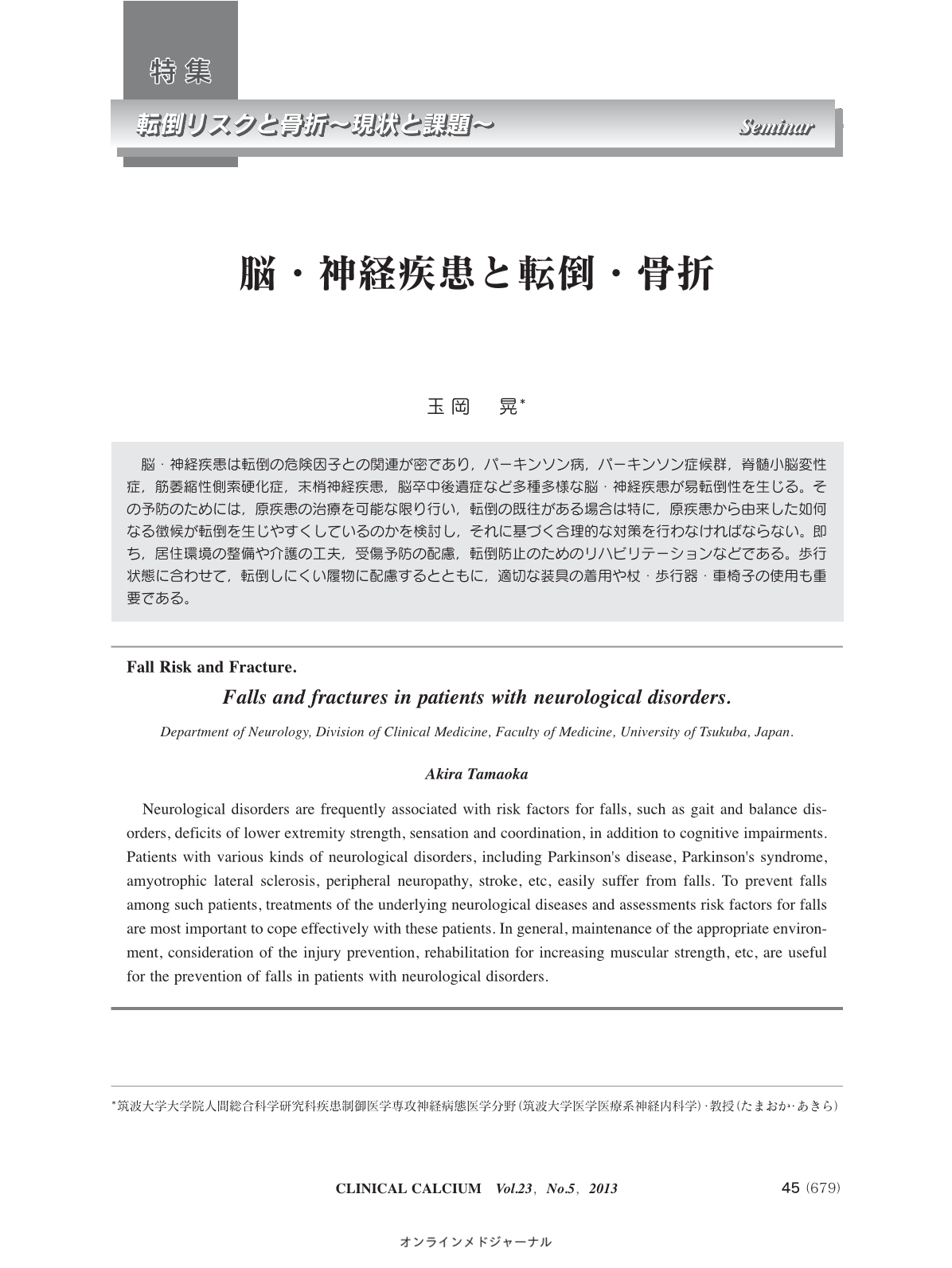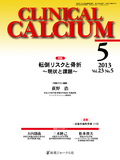Japanese
English
- 有料閲覧
- Abstract 文献概要
- 1ページ目 Look Inside
- 参考文献 Reference
脳・神経疾患は転倒の危険因子との関連が密であり,パーキンソン病,パーキンソン症候群,脊髄小脳変性症,筋萎縮性側索硬化症,末梢神経疾患,脳卒中後遺症など多種多様な脳・神経疾患が易転倒性を生じる。その予防のためには,原疾患の治療を可能な限り行い,転倒の既往がある場合は特に,原疾患から由来した如何なる徴候が転倒を生じやすくしているのかを検討し,それに基づく合理的な対策を行わなければならない。即ち,居住環境の整備や介護の工夫,受傷予防の配慮,転倒防止のためのリハビリテーションなどである。歩行状態に合わせて,転倒しにくい履物に配慮するとともに,適切な装具の着用や杖・歩行器・車椅子の使用も重要である。
Neurological disorders are frequently associated with risk factors for falls, such as gait and balance disorders, deficits of lower extremity strength, sensation and coordination, in addition to cognitive impairments. Patients with various kinds of neurological disorders, including Parkinson's disease, Parkinson's syndrome, amyotrophic lateral sclerosis, peripheral neuropathy, stroke, etc, easily suffer from falls. To prevent falls among such patients, treatments of the underlying neurological diseases and assessments risk factors for falls are most important to cope effectively with these patients. In general, maintenance of the appropriate environment, consideration of the injury prevention, rehabilitation for increasing muscular strength, etc, are useful for the prevention of falls in patients with neurological disorders.



